Ubuntu is one of the most widely used and popular Linux distributions, that comes in multiple editions including Ubuntu Desktop, Ubuntu Server, and Ubuntu Core to mention a few.
Ubuntu Desktop is a perfect choice for novices or users who are getting started out with Linux owing to its neat and intuitive user interface and default apps to help users get started.
Ubuntu Server is built for server environments, which is a lightweight and minimalistic version that is stripped off of any GUI applications and elements to enhance the speed and performance of running production-grade applications. It can serve as a web server, file server, development server, and DNS server to mention a few use cases.
In this guide, we will review some differences and similarities between these two Ubuntu editions.
Table of Contents
Differences Between Ubuntu Desktop and Ubuntu Server
In this section, we are going to explore the differences between Ubuntu Desktop and Ubuntu Server based on the following parameters:
Ubuntu Graphical User Interface (GUI)
One parameter distinguishing Ubuntu Desktop from the Server is the presence of a Graphical User Interface, which provides a desktop environment out of the box. Unity has been the default environment for the longest until the introduction of Ubuntu 18.04 (Bionic Beaver) which was the first Ubuntu desktop edition to feature GNOME desktop.
The GUI allows users to interact with the operating system using Windows, widgets, menus, icons, and other graphical elements. It’s more intuitive, especially for beginners and users who are not adept at the (CLI) command line interface.
The administration of the Ubuntu desktop is pretty straightforward since the interaction is via the graphical interface. In addition, you can install remote software tools such as TeamViewer, AnyDesk, and VNC Viewer to remotely connect to your system.
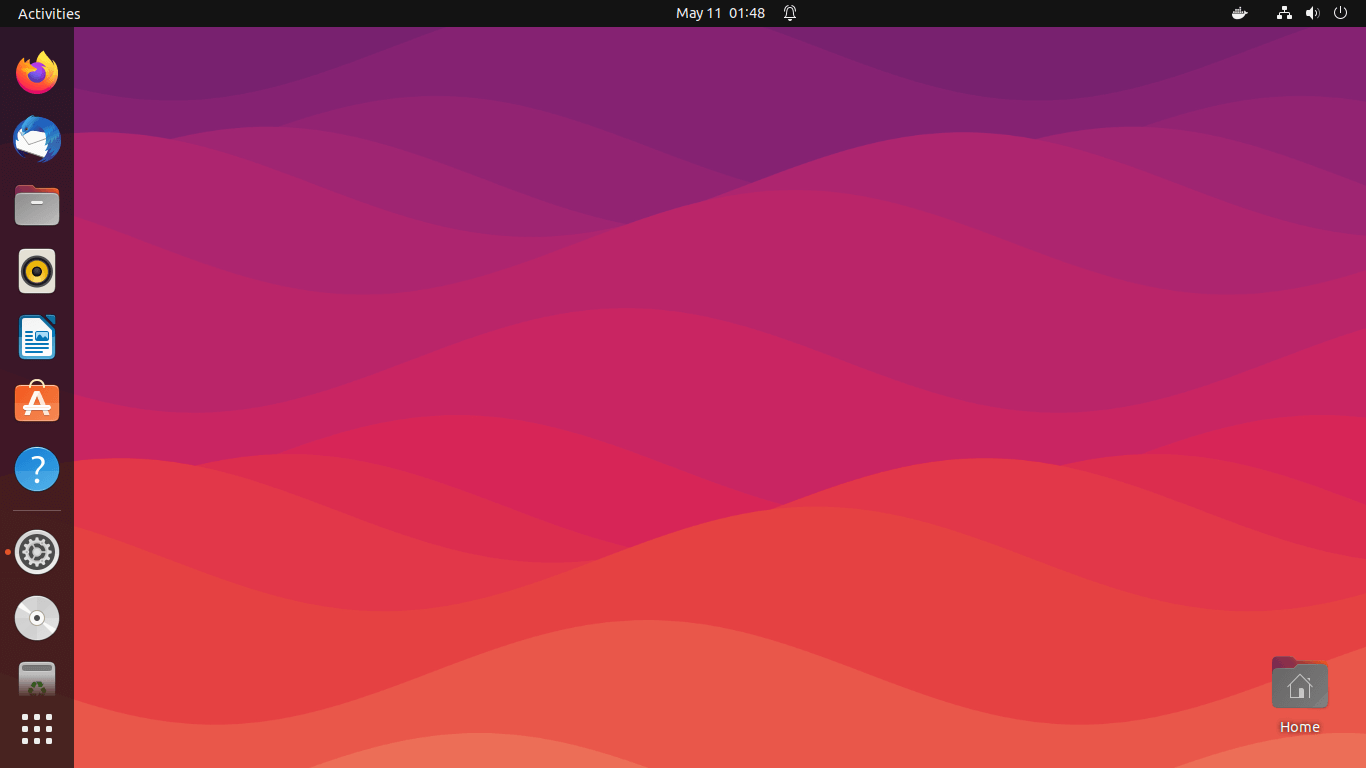
On the other hand, Ubuntu Server provides minimal installation and lacks a graphical interface. Administration of the server is mostly via CLI through SSH protocol. However, you can install web-based server-management tools such as Cockpit, Webmin, and Ajenti that will allow you to remotely administer your server on a browser.
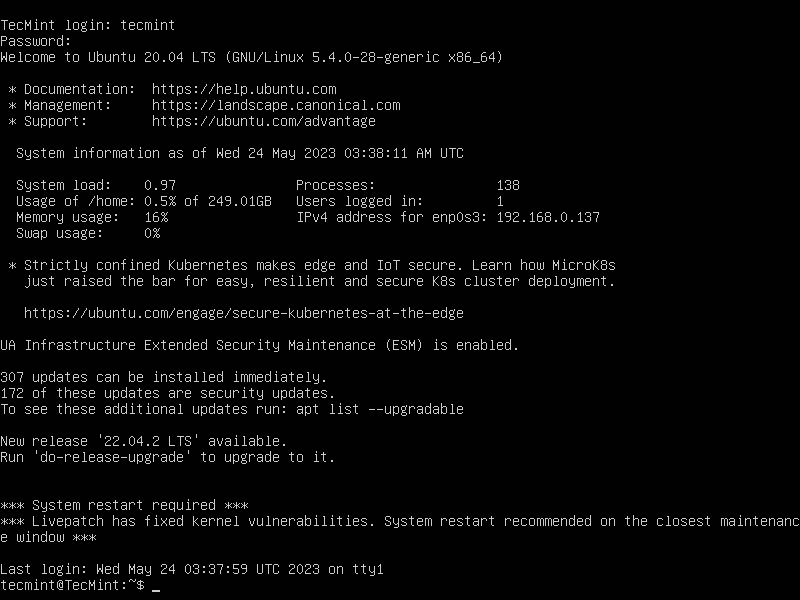
Ubuntu Memory Footprint
Ubuntu Desktop ISO image is quite big (4.6GB for Ubuntu 22.04) given the sheer number of software packages, libraries, and utilities that it bundles with by default. Therefore, ensure you have ample disk space when downloading the desktop version.
Ubuntu Server has a relatively small memory footprint (1.8GB for Ubuntu 22.04) for obvious reasons. It packs fewer software packages and utilities compared to the desktop edition.
Ubuntu Pre-Installed Software
Another major difference between Ubuntu Desktop and Ubuntu Server is in the number of pre-installed software applications.
Ubuntu Desktop ships with a vast array of pre-installed applications in almost every domain. Some of the applications you get out of the box include:
- Firefox Web browser
- LibreOffice suite
- Nautilus File Manager
- Thunderbird Email Client
- Screenshot Tool
- Multimedia app for watching videos, and playing mp3 files.
- Basic apps such as Calculator, Calendar, weather app, etc.
The Ubuntu Server is a stripped-down version of Ubuntu Desktop and only provides a handful of pre-loaded applications and software stacks that you can choose to install during installation, which includes:
- OpenSSH server
- LAMP server
- DNS server
- Print server
- Tomcat Java server
- Samba File server
- PostgreSQL database
Ubuntu Resource Utilization/Performance
As we have already seen, Ubuntu Desktop comes with a whole lot of pre-installed GUI applications, some of which might be considered bloatware if you are never going to use them at all.
The GNOME desktop environment is notorious for high CPU and RAM usage which can sometimes lead to degraded performance.
Firefox browser alone is known to cause sustained high resource usage in processing and displaying web content. For this reason, the Ubuntu desktop is not the right pick for server environments as high resource overhead will impact production-grade applications.
Ubuntu Server is stable and runs smoothly for the most part. It’s devoid of bloatware and you get to choose which applications and services to run. Thus, it records better performance than the Ubuntu desktop and is a great choice for running enterprise applications.
Ubuntu System Requirements
Due to its lightweight and minimalistic nature, the Ubuntu server‘s recommended installation requirements are slightly lower compared to Ubuntu Desktop. Here is a comparison of the two.
Ubuntu Server
- 1 GHz CPU or higher
- 1GB RAM or more
- 4.0 GB of hard drive space or higher
Ubuntu Desktop
- 2 GHz CPU or higher
- 4 GB RAM or more
- GPU: VGA capable of 1024×768 screen resolution
- 25 GB of hard drive space or higher
Similarities Between Ubuntu Desktop and Ubuntu Server
Having looked at the differences, let us now explore the similarities between the two.
Ubuntu Maintainer
Both Ubuntu Server and Ubuntu Desktop are actively maintained by Canonical and get updates, bug fixes, and patches from the same company.
Ubuntu Software Repositories
Ubuntu Desktop and Server share the same application repositories. To be more specific, these include Main, Multiverse, Universe, and Restricted.
Ubuntu Package Management
Both editions use the APT package manager which handles dependencies quite well during the installation of software packages. However, Ubuntu desktop also provides Software Center which is a GUI package manager that allows users to install and manage packages without running commands. Another popular GUI package manager is Gdebi.
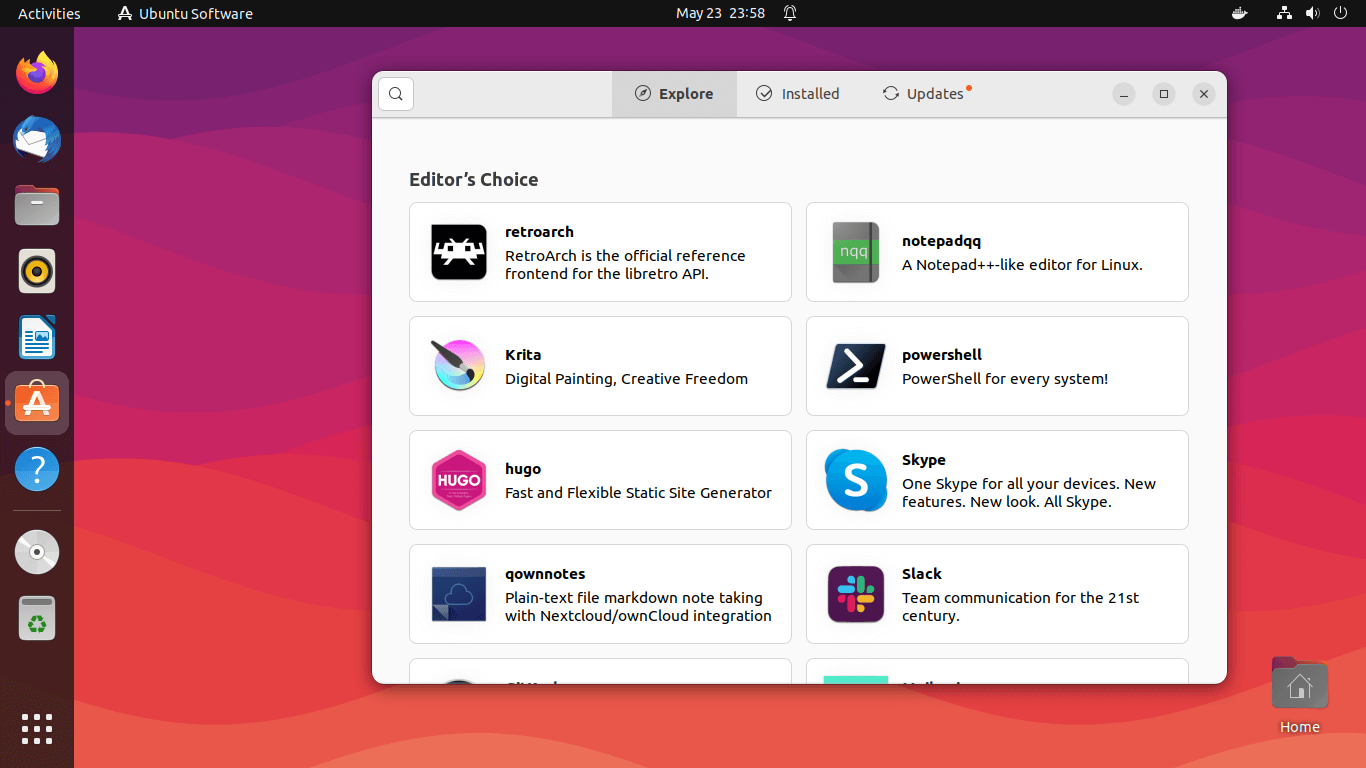
The dpkg package manager is also used by both editions to install .deb packages from external sources other than the main repository.
Ubuntu Desktop provides Gdebi which is a tiny app that helps users install .deb files efficiently by handling dependencies.
Ubuntu Kernel Build
If you’ve been wondering whether Ubuntu desktop and server use the same kernel, then the answer is a resounding YES. This has been the case since the release of Ubuntu 12.04 LTS.
Ubuntu Support
Every Ubuntu LTS release enjoys 5 years of standard support and this includes critical security fixes and patches as well as ongoing app updates.
You can check your Ubuntu support [EOL – End of Life] from the command line as shown.
$ hwe-support-status --verbose
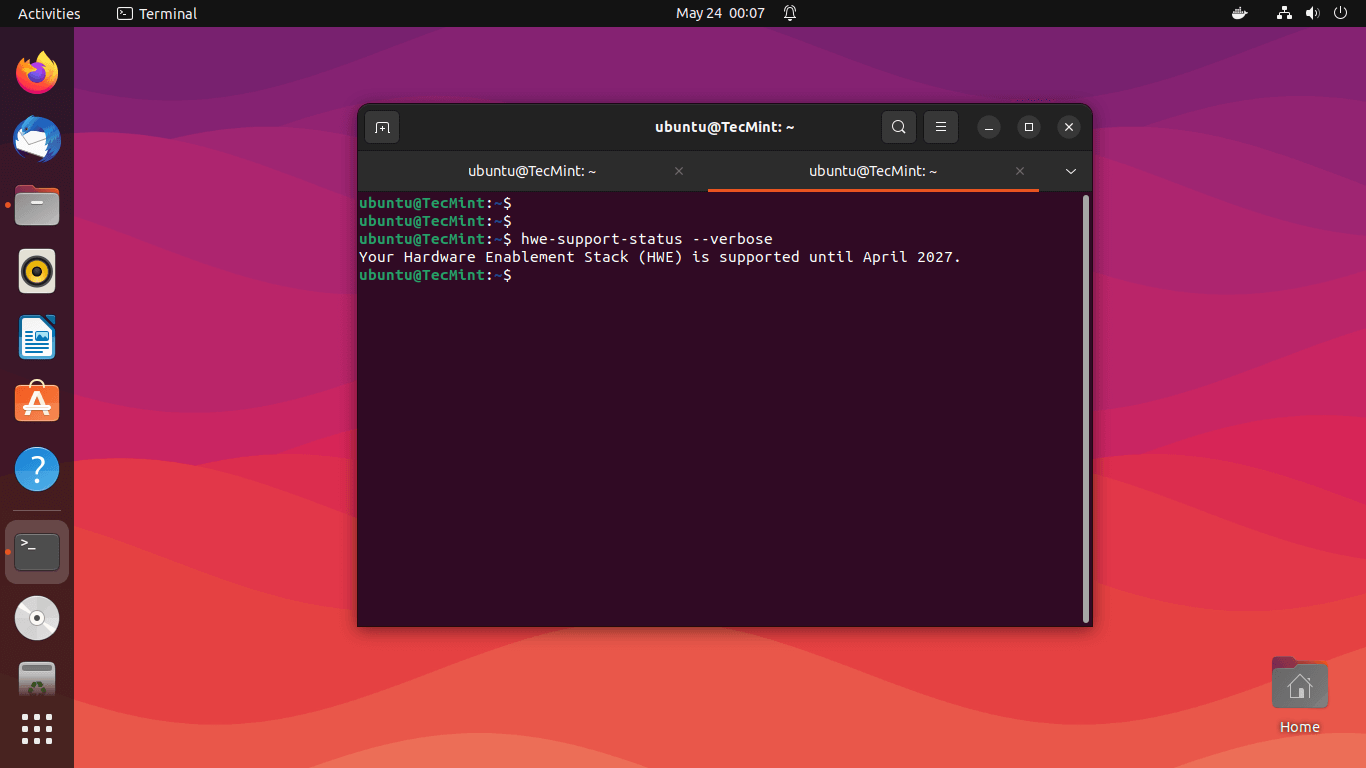
When Should You Use Ubuntu Desktop and Ubuntu Server?
Ubuntu Desktop is typically what you would go for if you intend to run a desktop operating system that provides a wide collection of apps and utilities for everyday use. Whether it’s office productivity, graphic design, video editing, or multimedia, Ubuntu Desktop is no doubt the right choice.
If you intend to host mission-critical applications, the Ubuntu server is recommended due to its great performance and stability. Its minimal nature ensures that most of the system resources are allocated to running intensive applications without service degradation.
You can comfortably run a web server, microservices using Docker and Kubernetes, and a myriad of other software stacks.
Conclusion
In this guide, we drew a comparison between Ubuntu Desktop and Ubuntu Server and flushed out the major differences and similarities between the two.
Typically, Ubuntu Desktop is a hot pick for home users and everyone who enjoys the appeal and elegance of a desktop environment. The server edition is majorly reserved for server workloads.




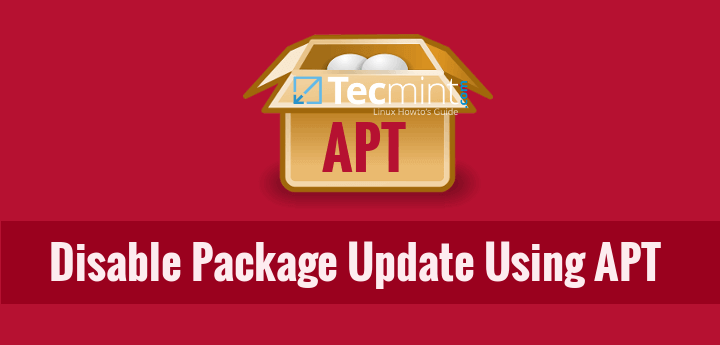
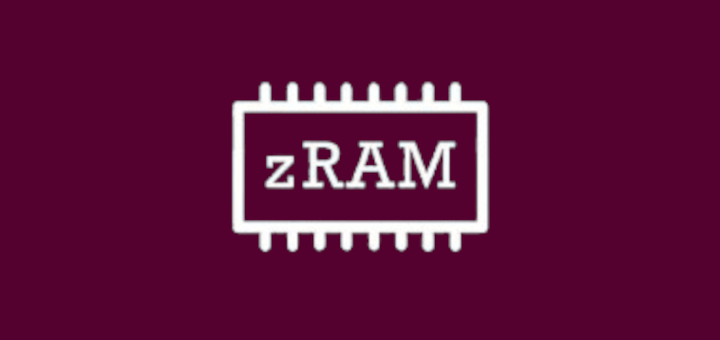
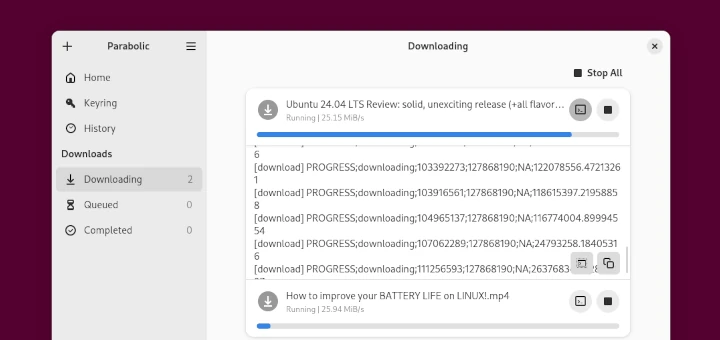
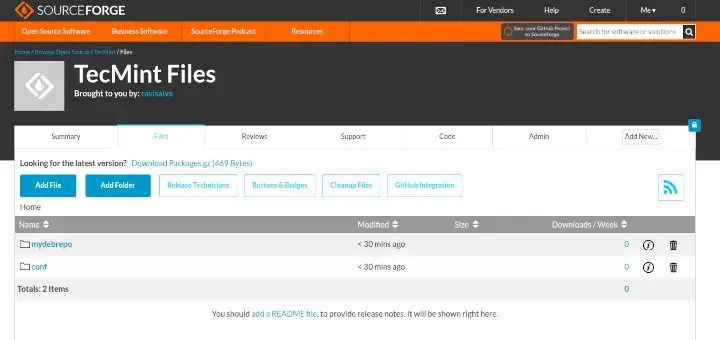
Well, I must say you are a very good teacher. A good flow of language to your learners and those seeking an update on information about Ubuntu.
I love Ubuntu and I wish to keep learning it.
Kiarie, keep it up!